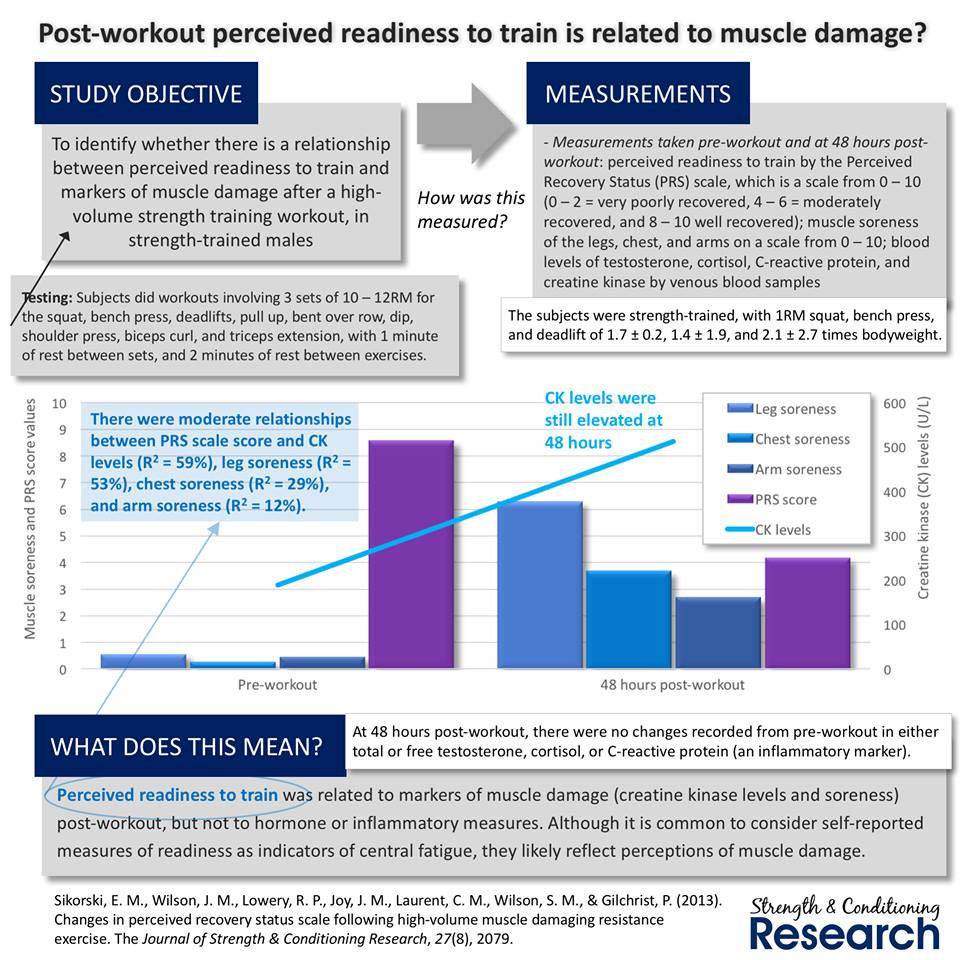After a strength training workout, we experience a temporary reduction in the ability to produce force.
This reduction in force is caused by 3 factors: central nervous system (CNS) fatigue, peripheral fatigue (linked to metabolite accumulation), and muscle damage.
Only the effects of muscle damage last for more than a few hours post-workout, and is therefore the only factor that contributes to our ability to perform another, similar workout within a few days of the original one.
Some lifters find this difficult to believe, because they experience a lack of motivation and readiness to train for several days after a workout, which they attribute to CNS fatigue.
However, this study showed that our personal perceptions of being ready for the next workout are linked to muscle damage (and therefore probably not CNS fatigue).

This reduction in force is caused by 3 factors: central nervous system (CNS) fatigue, peripheral fatigue (linked to metabolite accumulation), and muscle damage.
Only the effects of muscle damage last for more than a few hours post-workout, and is therefore the only factor that contributes to our ability to perform another, similar workout within a few days of the original one.
Some lifters find this difficult to believe, because they experience a lack of motivation and readiness to train for several days after a workout, which they attribute to CNS fatigue.
However, this study showed that our personal perceptions of being ready for the next workout are linked to muscle damage (and therefore probably not CNS fatigue).

